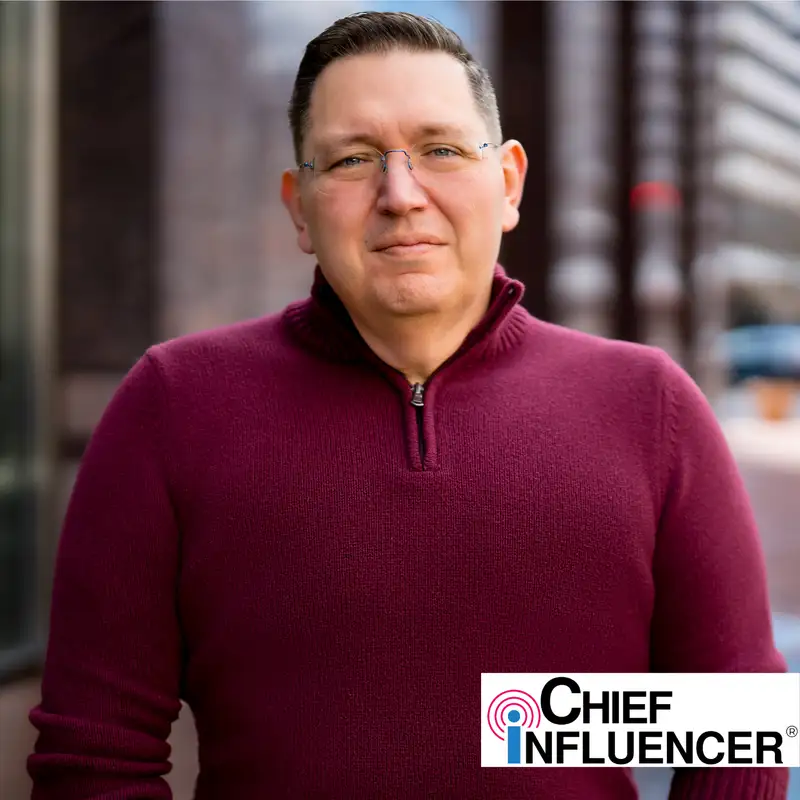Dr. Brian Castrucci, President and CEO of the de Beaumont Foundation, shares his journey from early-career public health professional to nationally recognized chief influencer. He describes his philosophy of venture philanthropy, approaching the foundation not as a traditional grant-maker, but as a risk-tolerant changemaker, much like an investor on Shark Tank. For Dr. Castrucci, philanthropy’s greatest asset isn’t cash, it’s the courage to take risks and go where others won’t. This mindset is reflected in the foundation’s efforts to boost vaccination rates among conservatives and in the strategic, mutually beneficial partnerships it forges across the public health sector.
He reflects on pivotal career moments, including advice from a mentor to go "be a pirate" before returning to philanthropy and the experience of being passed over for the CEO role, a setback he now sees as crucial for shifting his focus from personal achievement to organizational growth. Throughout the conversation, Dr. Castrucci emphasizes the importance of building an authentic, bottom-up work culture, using storytelling to advance public health, and embracing discomfort as a catalyst for growth.
Takeaways:
- Align Roles with Individual Strengths: A leader's job is to put people in positions where they can succeed and feel fulfilled. Instead of rigidly adhering to a job description, identify what your team members are uniquely good at and align their tasks accordingly. For example, if one person is a phenomenal community organizer but a weaker writer, let them focus on outreach while a stronger writer on the team handles those tasks.
- Go Where No One Else Is: To have an outsized impact, especially as a smaller organization, find the niche where others aren't working. Dr. Castrucci applied this by pivoting to focus on COVID-19 vaccine messaging for conservatives when most other large foundations were focused on communities of color, allowing de Beaumont's investment to have a significant, undiluted impact.
- Embrace Risk and Learn from Mistakes: View philanthropy and leadership through a "venture" lens where risk is your most valuable asset. Your role isn't just to implement what's already proven but to fund new ideas and evolve the evidence base for your field. Adopt the mindset that it's okay to make mistakes, as long as you learn from each one and don't repeat it.
- Foster a Culture of Authenticity: Leaders set the tone for the entire organization. By being open about your own life and priorities outside of work—such as leaving early for a child's concert—you make it acceptable for everyone else to bring their whole selves to work. This creates a more supportive and humane environment where people are comfortable sharing when they need flexibility.
- Practice Bi-Directional Mentorship: Mentorship shouldn't only flow from the "grizzled older veteran" to the early-career professional. Leaders can gain valuable perspective and stay ahead of evolving trends by actively learning from Gen Z and millennial employees. Use platforms like LinkedIn to engage in these egalitarian exchanges of ideas, where a good idea can be recognized regardless of age or title.
- Hire for Hunger and Smarts, Not Just Experience: Look beyond traditional credentials to hire people who are "whip smart" and hungry to learn, even if they seem inexperienced for the role on paper. This approach allows you to attract incredible talent that larger organizations might overlook. Throwing smart, capable people onto the field on day one allows them to rise to the occasion and accelerates their career growth.
- Help Others See Their Place on a New Path: Influence is the ability to help people see a path they wouldn't have seen on their own. When leading change, it's critical to show each individual how they and their unique skills still fit in—and are valuable—on the new path forward. This addresses the natural human desire for both organizational and individual achievement, ensuring people will follow you into uncharted territory.
Quote of the Show:
- “Influence is the ability to help others see a path that they would not have seen on their own.”
Links:
- LinkedIn: https://www.linkedin.com/in/brianccastrucci/
- Website: https://debeaumont.org/
